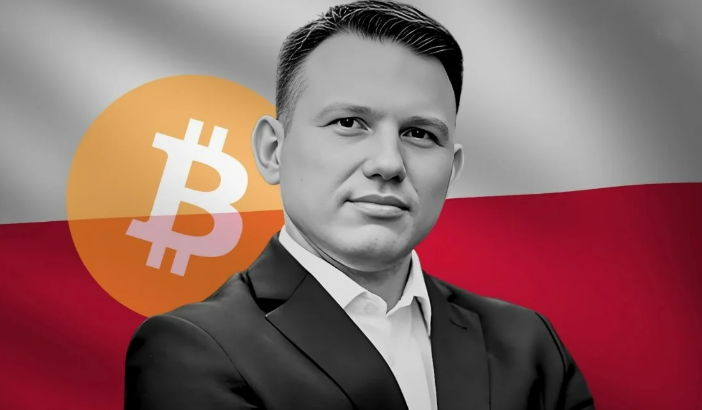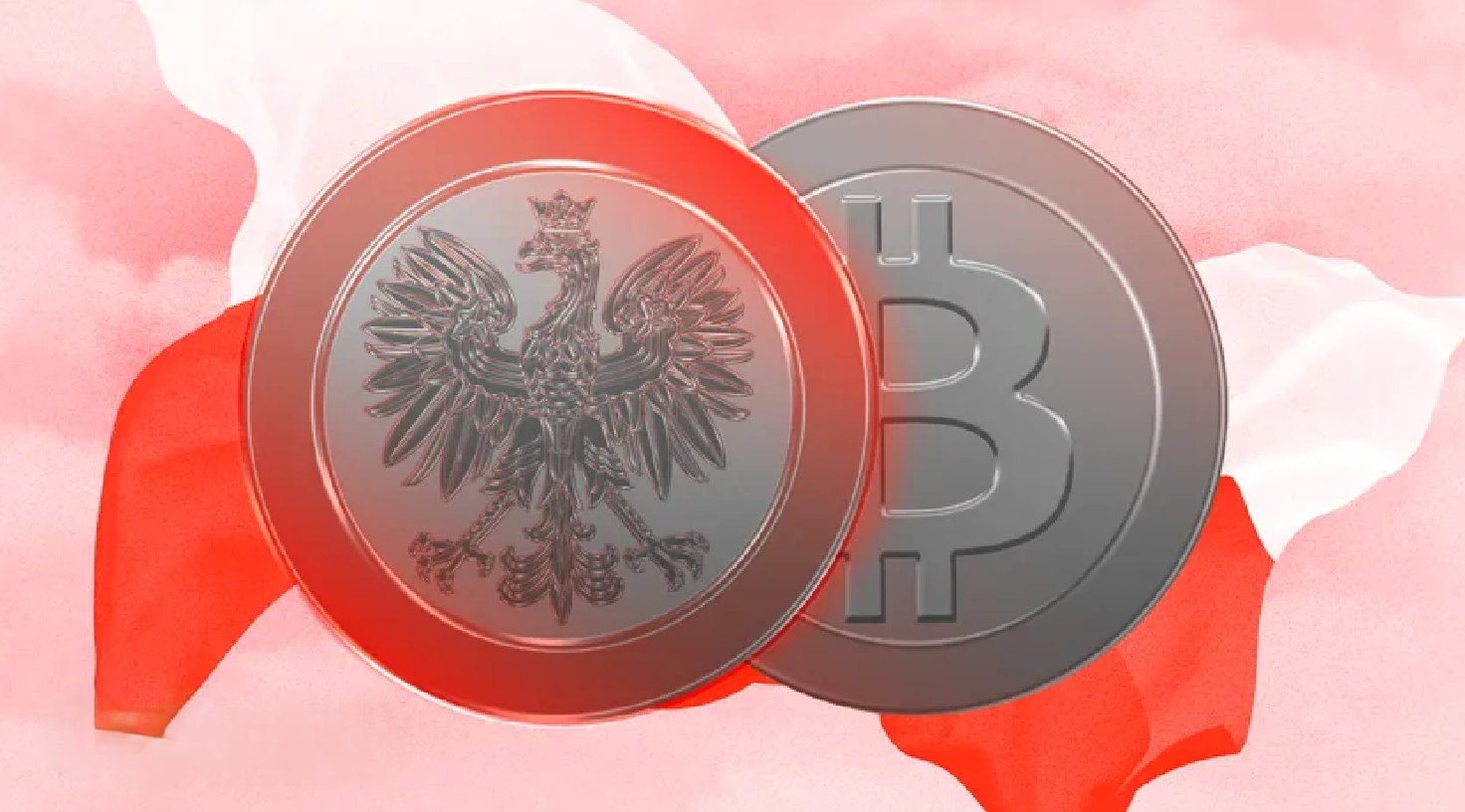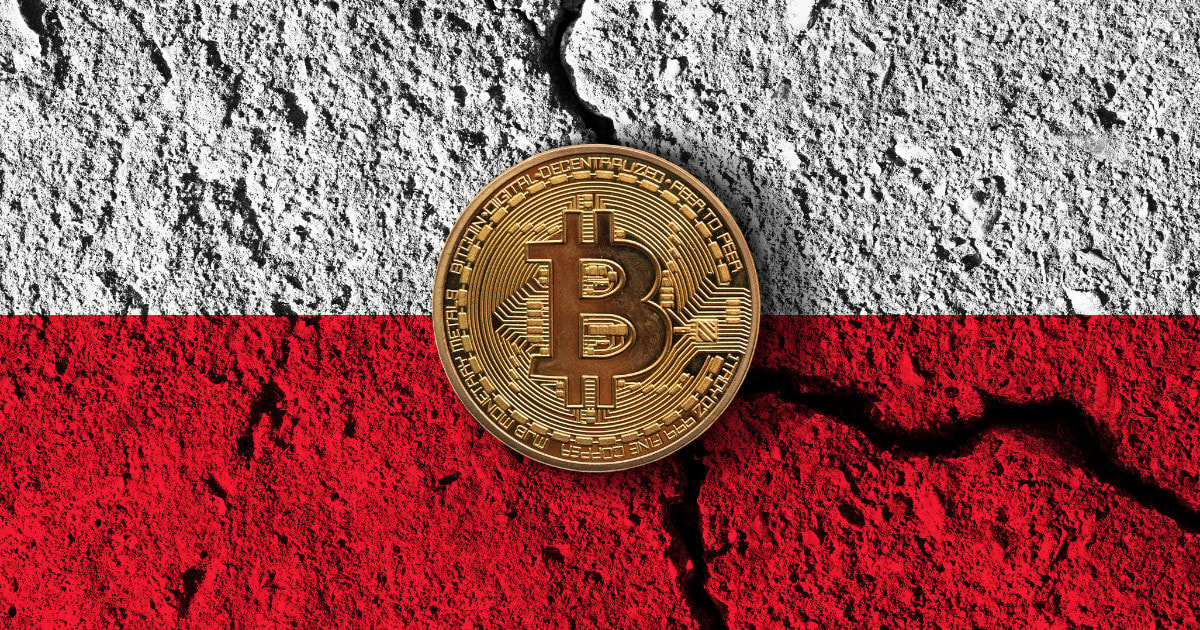Polish Presidential Candidate Pledges Support for Strategic Bitcoin Reserve if Elected
Polish presidential candidate Sławomir Mentzen has pledged support for a strategic bitcoin reserve if elected in 2025. His plan aims to integrate Bitcoin into Poland’s economy, attract major investments, and make Poland a leader in the cryptocurrency market. This article delves into Mentzen’s vision, the proposed regulations, and their expected impact, particularly as the Polish presidential candidate pledges support for strategic bitcoin reserve initiatives that could reshape the financial landscape.
Key Takeaways
- Presidential candidate Sławomir Mentzen aims to establish a strategic Bitcoin reserve in Poland, promoting the country as a leader in the global cryptocurrency market.
- Mentzen’s campaign focuses on developing crypto-friendly regulations and low taxes to attract businesses and investors, positioning Poland as a cryptocurrency haven within the EU.
- If successful, Poland’s crypto strategy could enhance financial inclusion, reduce transaction costs, and inspire other European nations to adopt similar approaches, significantly impacting the global cryptocurrency landscape.
Presidential Candidate Sławomir Mentzen’s Vision for a Strategic Bitcoin Reserve

Sławomir Mentzen, the Polish presidential candidate Sławomir, is no stranger to Bitcoin. He owns 33.7 bitcoins, having first invested in the cryptocurrency back in 2013 when its value was around $600. His deep personal involvement in the crypto space lends credibility to his bold vision for Poland: establishing a strategic bitcoin reserve if he wins the presidential elections in 2025. This is not just about holding digital assets; it’s about positioning Poland as a leader in the global cryptocurrency market. The presidential candidate Sławomir Mentzen aims to make this vision a reality.
Mentzen’s proposal includes very friendly regulations and low taxes, aiming to create a supportive environment for cryptocurrencies in Poland, especially in light of the upcoming polish presidential elections. This echoes similar promises made by U.S. President-elect Donald Trump, who has also proposed the establishment of a national bitcoin reserve. Integrating Bitcoin into the national strategy could attract significant investment and innovation, transforming Poland into a cryptocurrency haven.
The strategic bitcoin reserve is part of a broader vision to integrate Bitcoin into Poland’s financial ecosystem, thereby reducing transaction costs and enhancing financial inclusion. This bold move could potentially set Poland apart from other European nations, making it a beacon for crypto enthusiasts and investors alike, while also establishing a strategic reserve and a bitcoin strategic reserve.
Crypto-Friendly Regulations and Low Taxes
Mentzen’s vision goes beyond just a bitcoin reserve; he aims to establish Poland as the leading cryptocurrency haven in Europe. His campaign is centered on promoting the most cryptocurrency-friendly laws within the EU, creating a regulatory environment that is supportive and attractive to crypto businesses. This approach includes very friendly regulations and low taxes, designed to foster innovation and economic growth.
One of the key elements of Mentzen’s strategy is to implement a uniform approach to virtual currencies across the EU, potentially influencing other member states’ regulations. This proactive stance could position Poland as a model for other countries looking to develop their crypto sectors. Promising low taxes and a supportive regulatory framework aims to attract crypto businesses and investors, boosting Poland’s economy and technological advancement.
Mentzen’s push for a cryptocurrency-friendly environment could resonate with voters who are dissatisfied with traditional economic policies. This strategy not only promises economic innovation but also aligns with the global trend of freeing cryptocurrencies from excessive regulation, thus fostering a more open and dynamic financial ecosystem.
Integrating Bitcoin into Poland’s Financial Ecosystem

Mentzen believes that integrating Bitcoin into Poland’s financial ecosystem is a forward-thinking decision that could place the country at the forefront of digital finance. Including Bitcoin in the national currency reserves could benefit Poland by significantly lowering transaction costs and eliminating intermediary fees that burden consumers and businesses. This could enhance financial inclusion, particularly for individuals in rural or underserved areas, by facilitating inexpensive and immediate cross-border money transfers.
However, integrating Bitcoin into the financial system is not without challenges. The currency’s notable price volatility can affect its perceived stability as a medium of exchange. To address this, Mentzen has proposed innovative solutions, such as using municipal spaces for bitcoin mining to utilize the heat generated for building heating, thereby adding a layer of practicality to his crypto-friendly policies.
Mentzen’s proposal to integrate Bitcoin into Poland’s economy is also aimed at attracting younger and right-wing voters by promoting a libertarian economic agenda. This demographic is more likely to support innovative economic policies that prioritize technological advancement and economic freedom. Aligning his policies with their interests, Mentzen hopes to build a robust support base for his presidential candidate pledges.
Comparing Poland’s Crypto Strategy with Other Countries
A comparative analysis of cryptocurrency strategies globally reveals diverse approaches ranging from legal adoption to national reserves. Poland’s proposed strategy under Mentzen’s leadership aims to leverage these international examples to craft a uniquely advantageous position in the crypto market. Examining the experiences of other countries allows Poland to learn valuable lessons and avoid potential pitfalls.
El Salvador, for instance, became the first country to adopt Bitcoin as legal tender, sparking discussions about its economic impacts and potential for increased financial inclusion. The United States, under Donald Trump’s leadership, proposed a national bitcoin reserve to stabilize the cryptocurrency market and bolster the US economy. Argentina, with its crypto-friendly policies, showcases a unique landscape where bitcoin-denominated contracts are used despite regulatory challenges.
These international examples provide a backdrop against which Poland can measure and refine its own strategy. Understanding how other nations have navigated Bitcoin integration can help Poland position itself as a leader in the European and global cryptocurrency markets.
El Salvador’s Bitcoin Legal Tender

El Salvador’s decision to adopt Bitcoin as legal tender was a groundbreaking move that attracted global attention. The government promoted it as a means to enhance banking access and attract investment. However, despite the initial optimism, a significant portion of the Salvadoran population remains skeptical about Bitcoin, with many preferring the stability of the US dollar. This skepticism has led to fluctuations in the currency’s value, impacting the economy and raising questions about the long-term viability of Bitcoin as legal tender.
The Salvadoran experience offers valuable insights for Poland. While the potential benefits of enhanced financial inclusion and investment are significant, the challenges of public acceptance and economic stability cannot be overlooked. Poland can learn from El Salvador’s experience by implementing measures to mitigate volatility and build public trust in Bitcoin.
United States’ National Bitcoin Reserve Plan
Donald Trump’s proposal for a national bitcoin reserve aims to stabilize the cryptocurrency market and legitimize its use in the US economy. By creating a strategic bitcoin stockpile, the plan seeks to enhance trust in cryptocurrency, potentially attracting more investors and positioning the US as a leader in the global cryptocurrency landscape. The urgency of this proposal is underscored by the consideration of an executive order to establish the reserve before individual states take similar measures.
The establishment of a national bitcoin reserve could have far-reaching implications, influencing global markets and setting a precedent for other countries. Poland, under Mentzen’s leadership, could draw inspiration from this strategy, adapting it to fit its own economic context and regulatory environment.
Argentina’s Crypto-Friendly Policies
Argentina’s approach to cryptocurrency is characterized by the implementation of bitcoin-denominated contracts, facilitating business transactions in cryptocurrency. This innovative policy has helped integrate Bitcoin into the country’s financial system, despite the regulatory challenges that persist. The Argentine government’s efforts to create a favorable environment for crypto adoption highlight the delicate balance between regulation and innovation.
For Poland, Argentina’s experience underscores the importance of creating a supportive regulatory framework that encourages crypto adoption while addressing potential market stability issues. Learning from Argentina’s successes and challenges can help Poland develop a more robust and effective strategy for integrating Bitcoin into its economy.
The Role of Bitcoin in Modern Political Campaigns

Bitcoin is increasingly playing a significant role in modern political campaigns. The rise of Bitcoin donations offers a new avenue for campaign financing, appealing to candidates who value the anonymity and privacy these transactions provide. This trend is particularly attractive to younger, tech-savvy voters who are more likely to support candidates embracing innovative technologies.
However, the pseudonymous nature of Bitcoin transactions also raises concerns about potential misuse for money laundering and illegal activities. Despite these challenges, the use of Bitcoin in campaigns continues to grow, with candidates leveraging cryptocurrencies to energize their supporter base and differentiate themselves from traditional political figures.
Sławomir Mentzen’s campaign is a prime example of this trend. Advocating for a strategic bitcoin reserve and crypto-friendly policies taps into the growing interest in cryptocurrencies among voters, positioning him as a forward-thinking leader.
Potential Impact on the Polish Electorate
The Confederation party, led by Sławomir Mentzen, has gained significant traction among younger voters who are increasingly interested in cryptocurrencies. Mentzen’s policies are particularly appealing to this demographic, which is generally more tech-savvy and open to innovative economic strategies. His proposal to create a bitcoin reserve aims to attract libertarian-minded voters who prioritize economic freedom and low taxes.
Polling data indicates that the Confederation party’s stance on crypto-friendly regulations and economic reform resonates with a broader audience, including right-wing voters who support nationalism and conservative values. Aligning his campaign with the interests of these groups positions Mentzen as a candidate capable of bringing significant economic and technological advancements to Poland.
The potential impact on the Polish electorate is substantial. Mentzen’s policies not only promise economic innovation but also align with the global trend of embracing cryptocurrencies, making his campaign a beacon for those seeking change as a polish presidential candidate.
Global Implications of Poland Becoming a European Crypto Hub
If Poland successfully establishes itself as a cryptocurrency hub, the global implications could be profound. Attracting international investments would boost the country’s economy and position Poland as a significant player in the global cryptocurrency space and crypto capital. The introduction of the Markets in Crypto-Assets Regulation (MiCa) is expected to standardize virtual currency regulations across the EU, enhancing investor protection and market integrity.
Poland’s adoption of Bitcoin could also lead to increased tourism, similar to the 95% increase observed in El Salvador in 2023. This influx of tourists and investors would further boost the economy, creating a positive feedback loop that reinforces Poland’s status as a crypto-friendly nation.
The broader implications for the entire EU cannot be understated. Poland’s success could inspire other member states to adopt similar strategies, leading to a more integrated and dynamic cryptocurrency market across Europe.
Summary
Sławomir Mentzen’s bold vision for establishing a strategic bitcoin reserve in Poland represents a significant shift in the country’s economic strategy. By promoting crypto-friendly regulations and integrating Bitcoin into the financial ecosystem, Mentzen aims to position Poland as a leader in the global cryptocurrency market. Comparisons with other countries like El Salvador, the United States, and Argentina highlight the potential benefits and challenges of such a strategy.
The potential impact on the Polish electorate and the broader global implications underscore the importance of this initiative. If successful, Poland could become a European crypto hub, attracting investment and fostering innovation. The future of Poland’s economy could be bright, driven by the transformative power of Bitcoin and other cryptocurrencies.
Frequently Asked Questions
What is Sławomir Mentzen’s proposal for a strategic bitcoin reserve?
Sławomir Mentzen proposes creating a strategic bitcoin reserve to enhance Poland’s position in the global cryptocurrency market by implementing low taxes and favorable regulations to attract investment and innovation.
How does El Salvador’s experience with Bitcoin as legal tender influence Poland’s strategy?
El Salvador’s experience with Bitcoin underscores the importance of balancing potential financial inclusion and investment opportunities against public skepticism and economic volatility. Poland can utilize these insights to carefully craft its own strategy regarding cryptocurrency adoption.
What are the benefits of integrating Bitcoin into Poland’s financial ecosystem?
Integrating Bitcoin into Poland’s financial ecosystem can lower transaction costs and enhance financial inclusion, appealing to younger, tech-savvy citizens. However, this must be balanced with addressing challenges such as price volatility and the necessity for supportive banking policies.
How does Donald Trump’s proposed national bitcoin reserve compare to Mentzen’s plan?
Trump’s proposed national bitcoin reserve seeks to legitimize and stabilize the US cryptocurrency market, paralleling Mentzen’s plan for Poland which also aims to attract investment and establish a leadership position in the global cryptocurrency landscape. Both strategies emphasize the importance of positioning their respective nations in the evolving digital economy.
What impact could Poland becoming a European crypto hub have on the global market?
Poland becoming a European crypto hub could significantly enhance international investments and stimulate its economy, potentially inspiring other EU nations to adopt similar approaches. This shift could result in a more integrated and dynamic cryptocurrency market within Europe.

